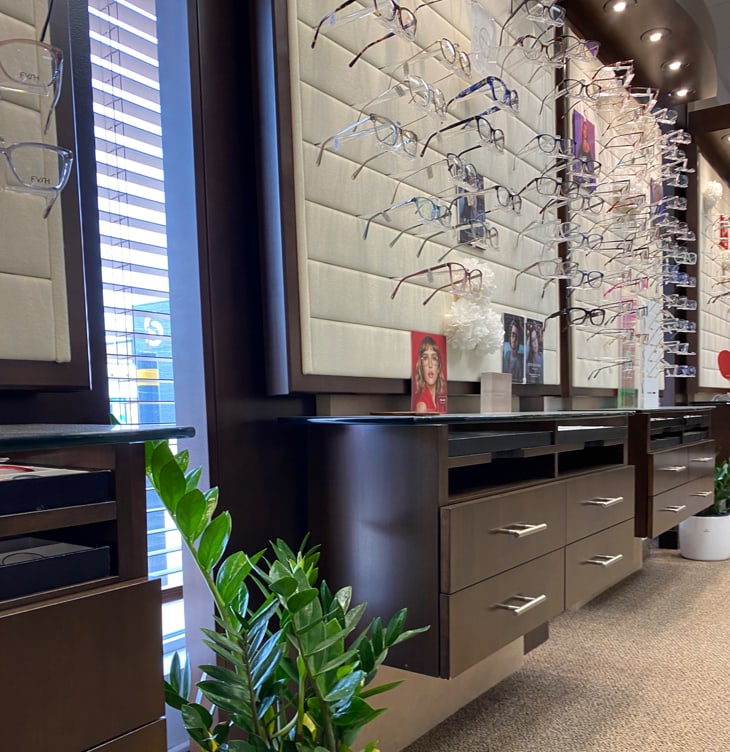Glaucoma is a significant eye condition affecting millions worldwide. Often referred to as the “silent thief of sight,” it gradually damages the optic nerve, leading to vision loss if untreated. But one question looms large for many patients and their families—is glaucoma hereditary?
There are indeed hereditary aspects of glaucoma. However, knowing the ways in which these aspects can manifest can help with prevention and management of the condition.
Understanding Glaucoma
Before we explore its hereditary nature, let’s briefly understand what glaucoma entails. Glaucoma is not a single disease, but rather a group of eye conditions that damage the optic nerve. This damage is usually associated with elevated intraocular pressure (IOP), when there are imbalances in the creation and drainage of the aqueous humor (fluid produced by the eye).
However, some types of glaucoma can occur even when IOP is normal, making regular eye exams crucial for early detection.
Types of Glaucoma
- Primary Open-Angle Glaucoma (POAG) – The most common form, characterized by a gradual increase in IOP. There are two distincts categories based on age of onset, with early-onset POAG (3-40yo) and adult-onset POAG (>40 yo).
- Primary Angle-Closure Glaucoma (PACG) – Occurs when the drainage angle in the eye closes or becomes blocked, potentially leading to a sudden symptomatic increase in IOP in its acute phase. PACG may occur as a sub-acute and chronic presentation, which may be asymptomatic for the most part.
- Normal-Tension Glaucoma – Optic nerve damage that occurs despite normal IOP levels.
- Congenital Glaucoma – A rare form that occurs in infants (<3yo) due to developmental issues in the eye’s drainage system.
- Secondary Glaucoma – all other forms of glaucoma associated with a specific syndromic frameworks (e.g, exfoliation syndrome, aniridia), or associated with predisposing events, including trauma, systemic diseases (e.g. diabetes) and pharmacologic treatment.
The Hereditary Aspect of Glaucoma
Glaucoma Genetics
Research shows that complex genetics play a role in all forms of glaucoma development, including primary open-angle glaucoma. Studies have identified several genes associated with the condition, including MYOC, OPTN, TBK1 and CYP1B1, among others. These genes are involved in various biological processes that maintain the functionality and integrity of the eye structures involved in the regular flow of aqueous humor (fluid) in the eye.
Glaucoma can occur at all ages exhibiting a classic genetic inheritance pattern or a complex inheritance pattern. While the early-onset glaucoma has a tendency to show a more classic inheritance pattern (mutations of a specific gene), the most common adult-onset glaucoma generally involves a complex interplay between predisposing genes and evidence-based risk factors.
Hereditary Eye Conditions
While glaucoma is multifactorial, meaning it’s influenced by both genetic and environmental factors, family history remains one of the most significant risk factors. If you have a first-degree relative (parent or sibling) with glaucoma, your risk of developing the condition increases significantly.
In families where glaucoma is prevalent, the likelihood of inheritance is higher. It’s vital for individuals with a family history to undergo regular eye examinations, as early detection is key to managing the condition effectively and preventing vision loss.
Evidence-Based Risk Factors of Glaucoma
Ethnicity, gender, aging, IOP, the thickness of your cornea, previous history of migraines, myopia, various systemic diseases, eye injury and your steroid responsiveness are all risk factors associated with different forms of glaucoma. The interplay is complex and your eye doctor is there to link all risk factors and decides on the optimal management strategy to ensure early diagnosis is made in time to prevent visual loss as much as possible.
The Role of Genetic Testing
Though current research has identified some genetic markers, genetic testing for glaucoma is not yet routine. However, genetic testing seems to be a promising future approach. Understanding your genetic disposition can inform you about your risk level and necessitate more vigilant monitoring and preventive measures.
The Impact of Lifestyle and Environment
While genetics play a substantial role in developing glaucoma, lifestyle and environmental factors cannot be overlooked. Healthy habits such as regular exercise, maintaining a balanced diet, and avoiding smoking and excessive alcohol consumption can support eye health and potentially reduce the risk of glaucoma.

Managing Glaucoma Risk
If you have a family history of glaucoma, here are steps you can take to manage your risk:
- Regular Eye Exams – Schedule comprehensive eye exams, especially if you’re over 40 or have a family history. Early detection allows for timely treatment and can prevent vision loss.
- Know Your Family History – Discuss your family’s eye health history with relatives to understand your risk better.
- Adopt a Healthy Lifestyle – Incorporate healthy habits to support overall eye health. This includes a well-balanced diet with an increased intake of leafy vegetables (especially dark leafy greens) and fruits as well as regular light to moderate intensity exercises.
- Protect Your Eyes – Wear protective eyewear during activities that could cause eye injury; any trauma to the eye can disturb the normal flow of aqueous humor and affect the IOP.
- Manage Health Conditions – Conditions like diabetes and hypertension can elevate directly or indirectly your risk for glaucoma. Keep these conditions under control with proper medication and lifestyle changes.
Thinking About Booking Your Next Eye Exam?
While glaucoma is indeed influenced by hereditary factors, it’s not solely determined by them. Understanding your genetic predisposition can guide you towards proactive measures in eye care. Regular check-ups, healthy lifestyle choices, and staying informed about your family’s health history are critical steps in managing glaucoma risk.
If you’re concerned about your risk of developing glaucoma or have a family history, consult with Old South Optometry in London, ON. Early detection and intervention are paramount, allowing those affected to preserve their vision and maintain a good quality of life.
Knowledge is power. Understanding the hereditary aspects of glaucoma empowers you to make informed decisions about your eye health, ensuring you stay ahead in the battle against this silent thief of sight.











